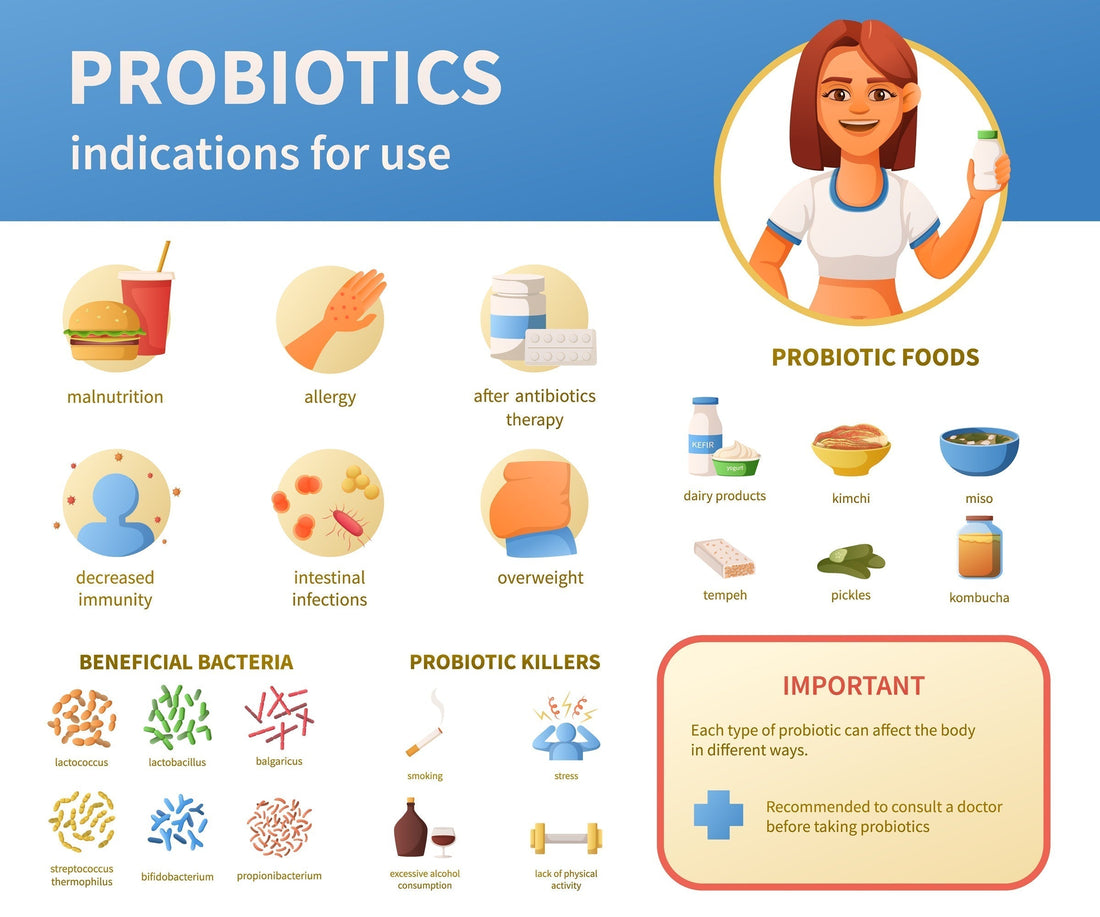
Who Needs Probiotics?
Kongsi
Probiotics are the beneficial bacteria that inhabit the human intestinal tract. The term probiotic is derived from Greek and literally means “for life". Probiotics can be found in fermented foods such as yogurt, aged and raw cheeses, kefir, kimchi, sauerkraut, and miso. Probiotics are also available in the form of supplements.
Probiotics are friendly bacteria that help create a healthier gut environment and, in turn, support overall health. They work by:
> Protecting the gut lining: Blocking harmful microbes from attaching.
> Creating a balanced environment: Producing compounds that nourish the gut and encourage good bacteria to flourish.
> Maintaining microbial balance: Preventing dysbiosis (imbalance), which reduces digestive issues like gas, bloating, and indigestion.
Who can benefit from probiotics? In short—almost everyone. Probiotics have been studied extensively, with more than 1,000 double-blind, placebo-controlled trials showing their wide-ranging benefits. Most research highlights their role in supporting digestive health and strengthening the immune system, which explains why these are the main reasons people add probiotics to their wellness routine.
But that’s not all. Studies also suggest probiotics may help with general wellness, mood balance, cardiovascular health, and women’s health concerns such as vaginal and urinary tract support.
Top 10 Reasons to Consider a Probiotic Supplement:
1. If you’re taking antibiotics
2. For infants, toddlers, and children who need immune or digestive support
3. For infants with allergies that may increase the risk of eczema or asthma
4. If you have Irritable Bowel Syndrome (IBS)
5. If you struggle with poor gut barrier function (“leaky gut”)
6. For those with other digestive concerns
7. For women with recurring vaginal or urinary tract infections
8. If you’re traveling to areas where traveler’s diarrhea is common
9. If your diet is poor or you’re under chronic stress
10. If you regularly take prescription or over-the-counter medications
Sources: Michael Murray, MD, Cochrane Database
